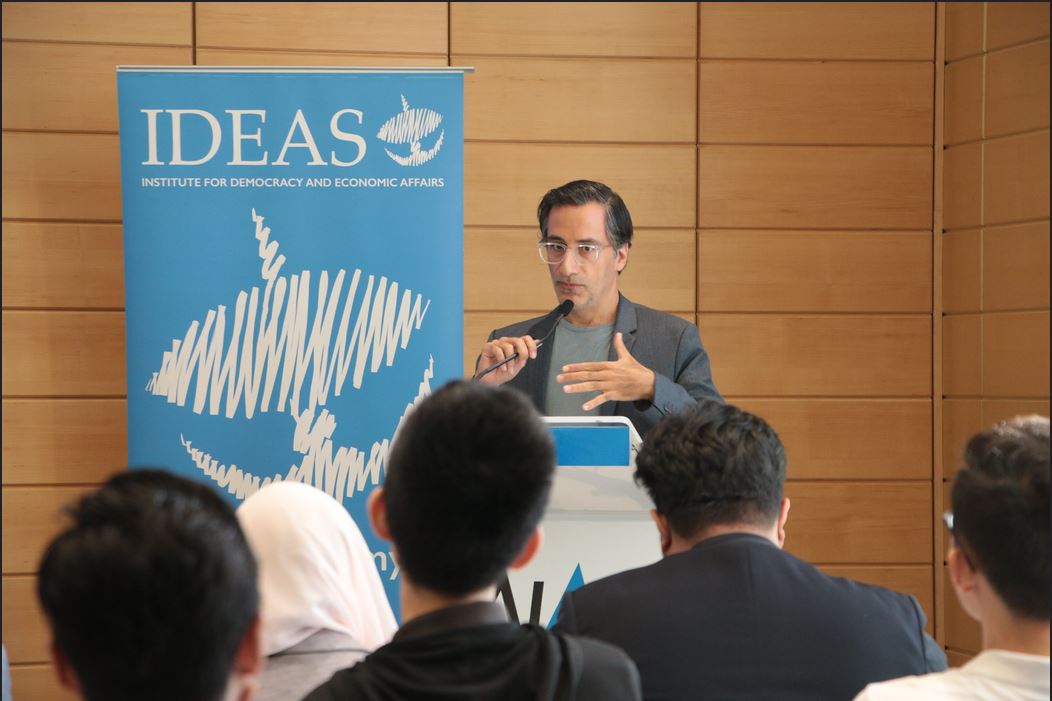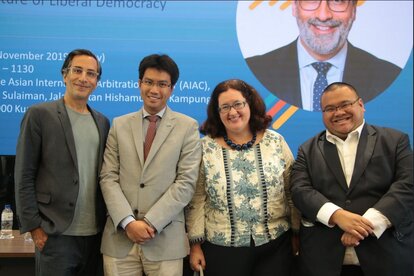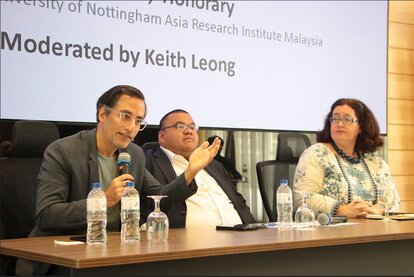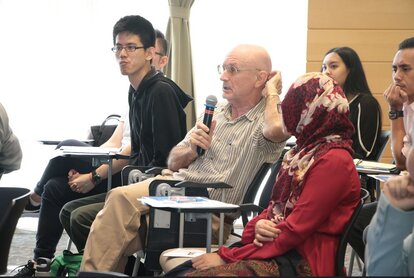Event
IDEAS Public Lecture: The Future of Liberal Democracy in Asia

On the 1st of November 2019, The Institute for Democracy and Economic Affairs (IDEAS) organised a public lecture that discussed on the future of liberal democracy in Asia. The event featured presentations by Professor Alexander Goerlach, Founder of Save Liberal Democracy and Dr Bridget Welsh, Honorary Research Associate from University of Nottingham Asia Research Institute Malaysia. After both speakers had presented, a panel discussion moderated by Keith Leong was then held.
The opening remarks were given by YAM Tunku Zain Al-’Abidin ibni Tuanku Muhriz. He began by stating that Malaysia’s first Prime Minister, Tunku Abdul Rahman had always believed in the values of liberal democracy. However, the words “liberal” and “democracy” have become dirty and misunderstood since the past few decades. He stressed on how our institutions are being recast to pursue a different kind of narrative that eventually led to some of our articles perceived in a different light. Despite the many promises that the government has made during GE14, this situation is still happening. He also reminded us that despite some of our misgivings, we are making some progress by having new names in our institutions. This is important to determine whether Malaysia can still be on track towards our intended liberal democracy governance.

Following that, Professor Alexander Goerlach continued with his presentation. He focused on the future of liberal democracy and what illiberal democracy really is. He went back to the times of ancient democracy in Greece and the suffragette movement before asking the audience whether we want to face that sort of regression in this society. He also said that the basis of society which claims to be liberal raises the notion of human rights. From that notion, the legal system and rule of law are derived. The important driver for democracy is the winners and losers of the elections to which he alluded that we should find ways on how to tackle these two groups.
As democracy nowadays is very much linked to nation states, he remarked on the underlying sentiment of belonging to a group or notion that grants specific rights and demands specific obligations from its citizens. He also stated that empathy is the fluid that connects all human beings to another regardless of your ethnicity, religion, sexualtiy and other differences. All of us have something in common that connects us with mankind. In fact, if we were to go into other cultural history, similar notions can be found.

Dr Bridget Welsh then moved the discussion to a more Asiacentric approach. She said there is a worrying trend where we see larger forces undermining democractic practises with the rise of non-democratic forces such as in Indonesia and Malaysia. In the context of Asia, globalisation has failed in many ways. It comes from the policies of exclusivity that are currently in function. She also warned us not to ignore the power of social media especially in emotional type of politics. There is an alarming number of people who believe that Malaysia needs a military government hence the rising support for more authoritarian practises. She pointed out that the liberals in most of Asian society, especially in South East Asia, are actually the minority. The conservatives are the majority in terms of values. She ended her presentation by stating that Malaysia has shown how hard it is to build a democratic society after GE14. Changes need to take place in not only the institution, but also in the society.
During the panel discussion, several interesting questions were posed to the panelists. These include elaboration on the Third Force, the forces that drive political ignorance in members of the society and the dilemma of the third culture children. Dr Bridget Welsh summed up the session by saying that she is “cautiously optimistic” about the future of Asia’s liberal democracy and that sometimes good things can come out of the 3 C’s: chaos, conflict, and contention.
Read original article here :
http://www.ideas.org.my/ideas-public-lecture-the-future-of-liberal-demo…
